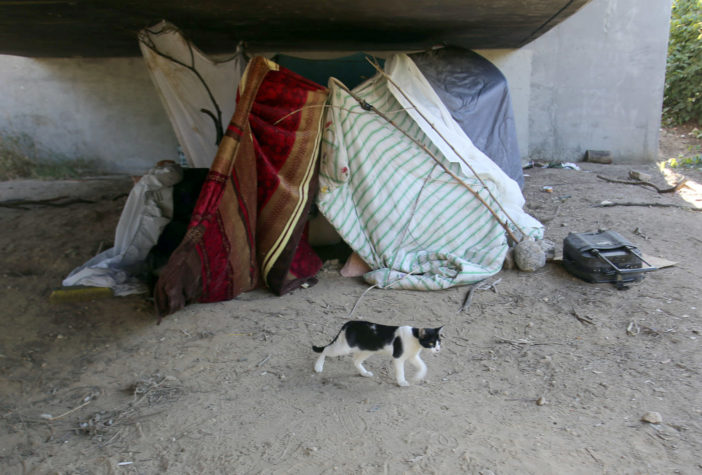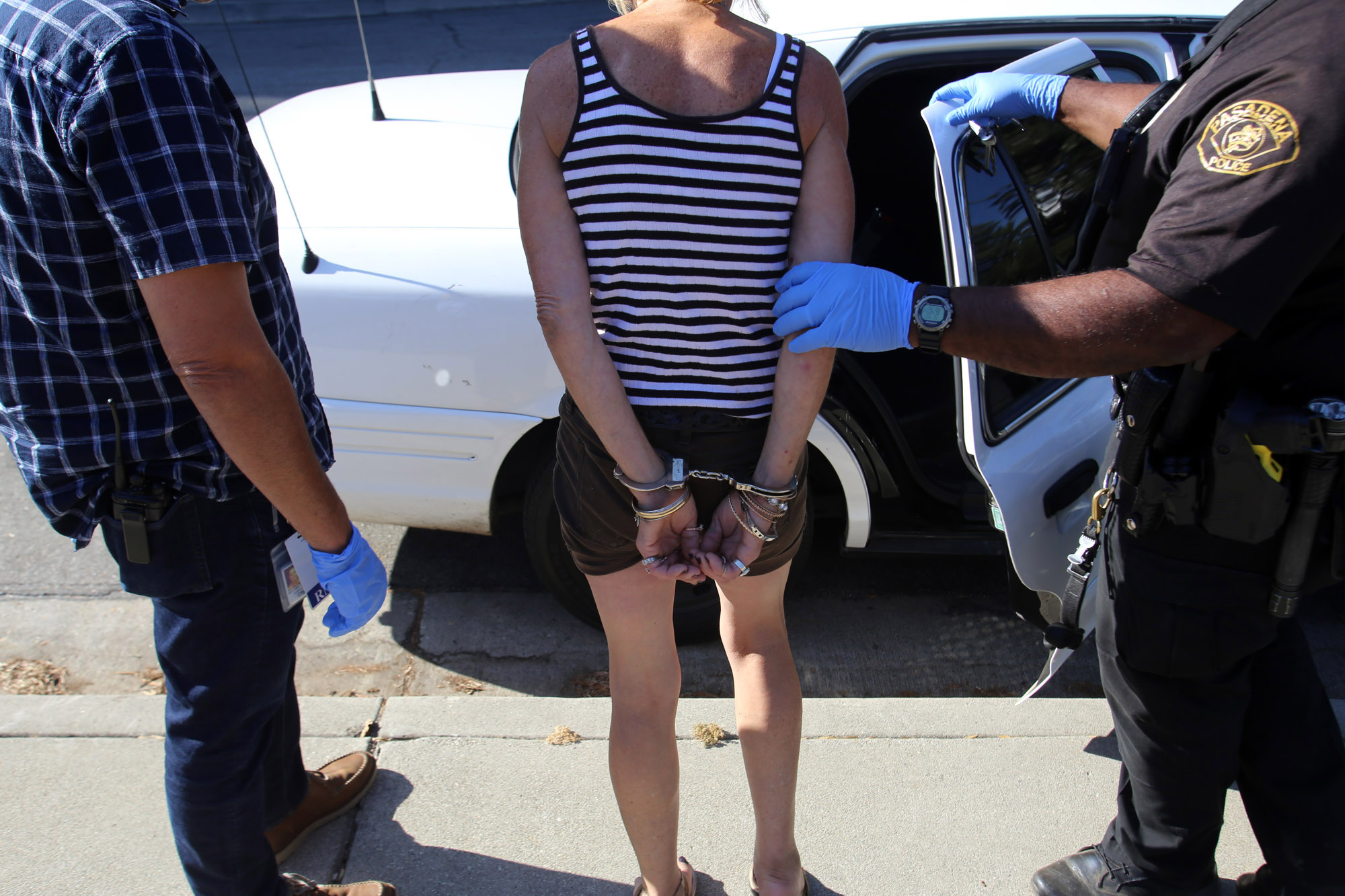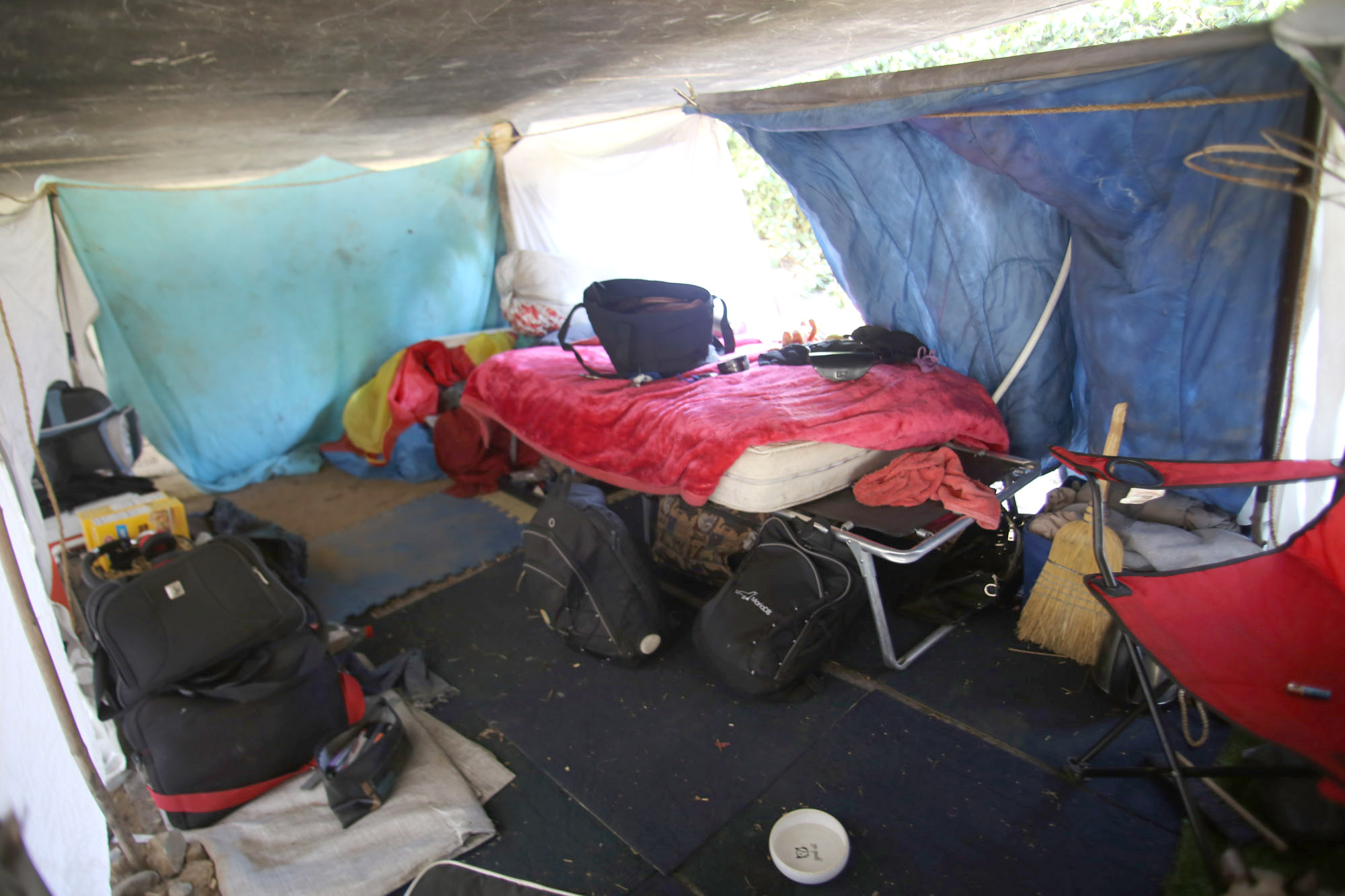The Pasadena Police Department’s Homeless Outreach Psychiatric Evaluation team, commonly known as the H.O.P.E. team, confront, on a daily basis, the complexities of homelessness, mental illness and drug addiction, having to know when to show compassion and when to step up enforcement.
When dealing with the approximately 500 to 700 homeless individuals in Pasadena, not to mention mentally ill citizens who are not homeless, it’s often a combination of both.
“It’s kind of a holistic approach,” said Sgt. Monica Cuellar, supervisor of H.O.P.E. team. “We have such great resources we work with.”
The HOPE team consists of police officers who partner with mental health clinicians that work for the County of Los Angeles.
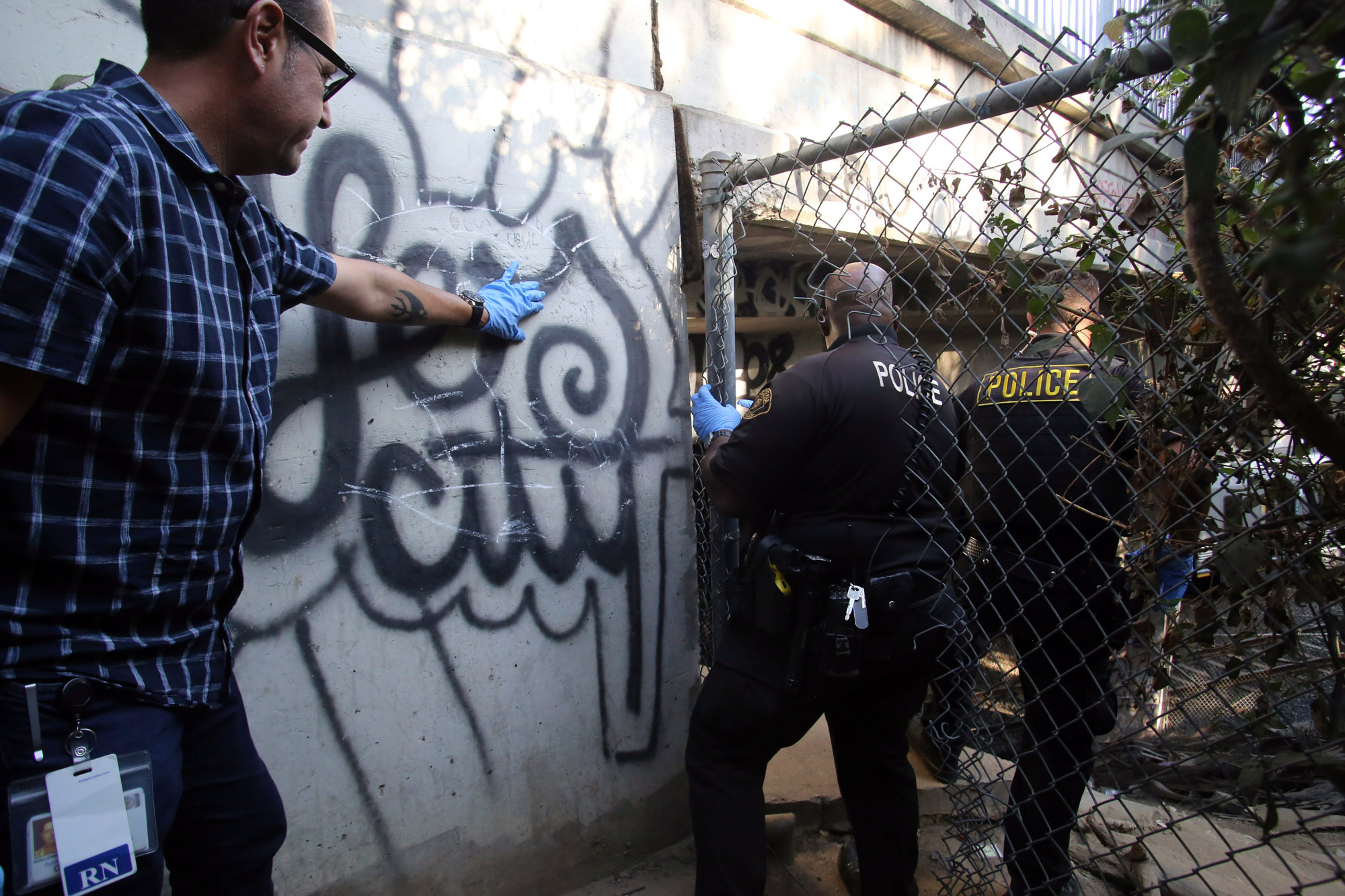
Gillermo Vasquez a psychiatric registered nurse working for the Pasadena PD, left, Pasadena Police Officers Donovan Jones and Ed Acosta all part of the HOPE team, Homeless Outreach Psychiatric Evaluation, walk through an opening of a fence under the metro Gold Line bridge in South Pasadena looking for homeless people living there on Tuesday September 3, 2019. (photo by James Carbone)
The HOPE team consists of police officers who partner with County of Los Angeles mental health clinicians. They assess a person’s needs for services and have access to resources such as clothing, food, shelters, substance abuse treatment facilities and health clinics.
But if an individual continues breaking the law after numerous offers of help, “there has to be some consequences,” Cuellar said.
Citizens cannot be victimized without repercussions, said Off. Donovan Jones, a 28-year Pasadena PD veteran and member of the H.O.P.E. team for more than two years.
“If we deal with a certain individual numerous times, and they don’t want any services and they don’t wish to have any type of referrals, then sometimes we have to do the enforcement component,” Jones said. “Crimes come first.”
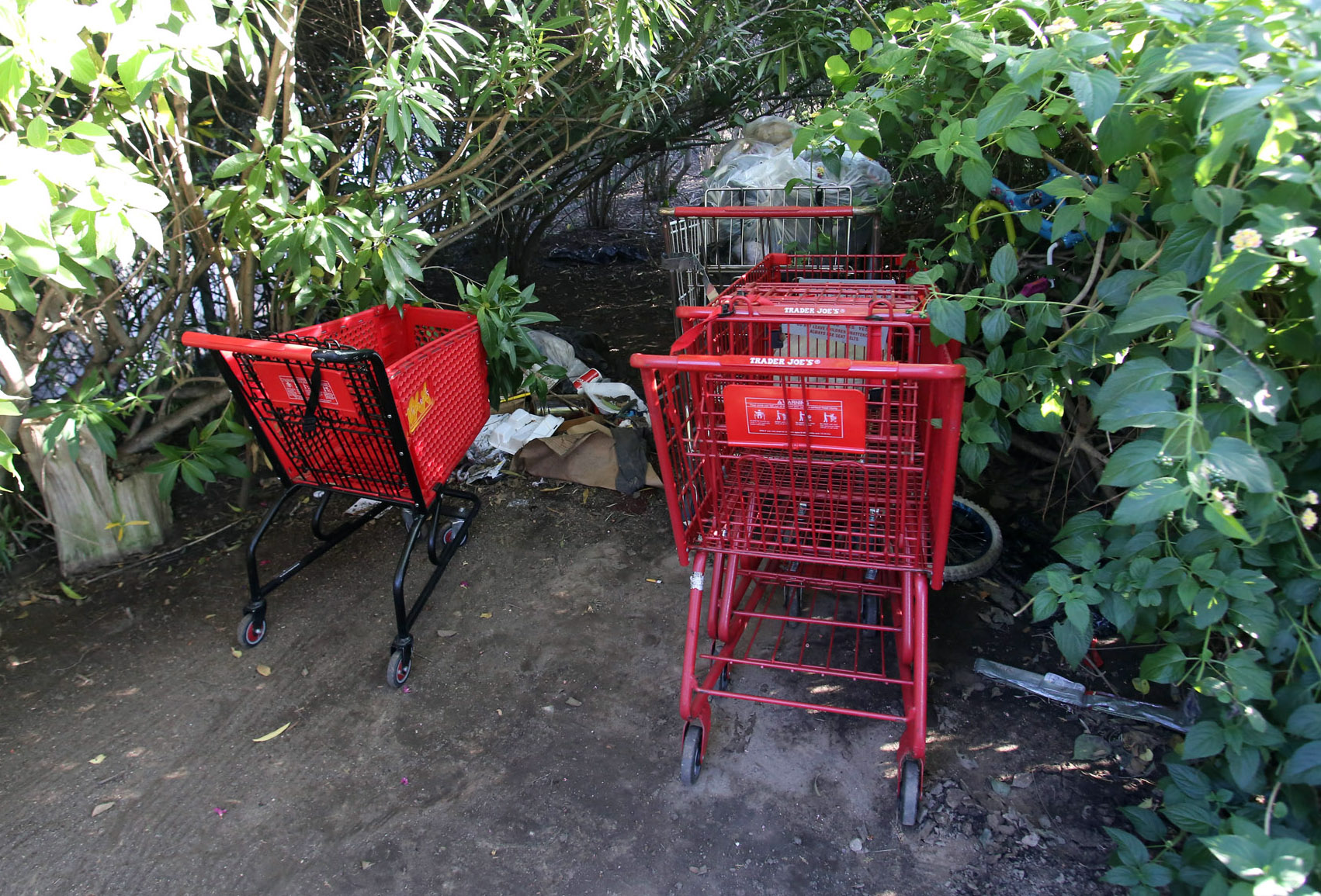
Stolen shopping carts which can cost up to $450 each are hidden in the bushes under the Gold Line bridge in South Pasadena on Tuesday September 3, 2019. (photo by James Carbone)
Every Pasadena officer is trained to deal with the homeless and mentally ill, but can’t typically devote the length of time such contacts take without it impacting their normal patrol duties.
“We do a little more outreach,” Jones said.
But convincing a person to get isn’t easy, said Guillermo Vasquez, a licensed psychiatric nurse who partners with Jones.
“Whether it is addiction, homelessness and mental illness, most of the time we sell all three components,” Vasquez said.
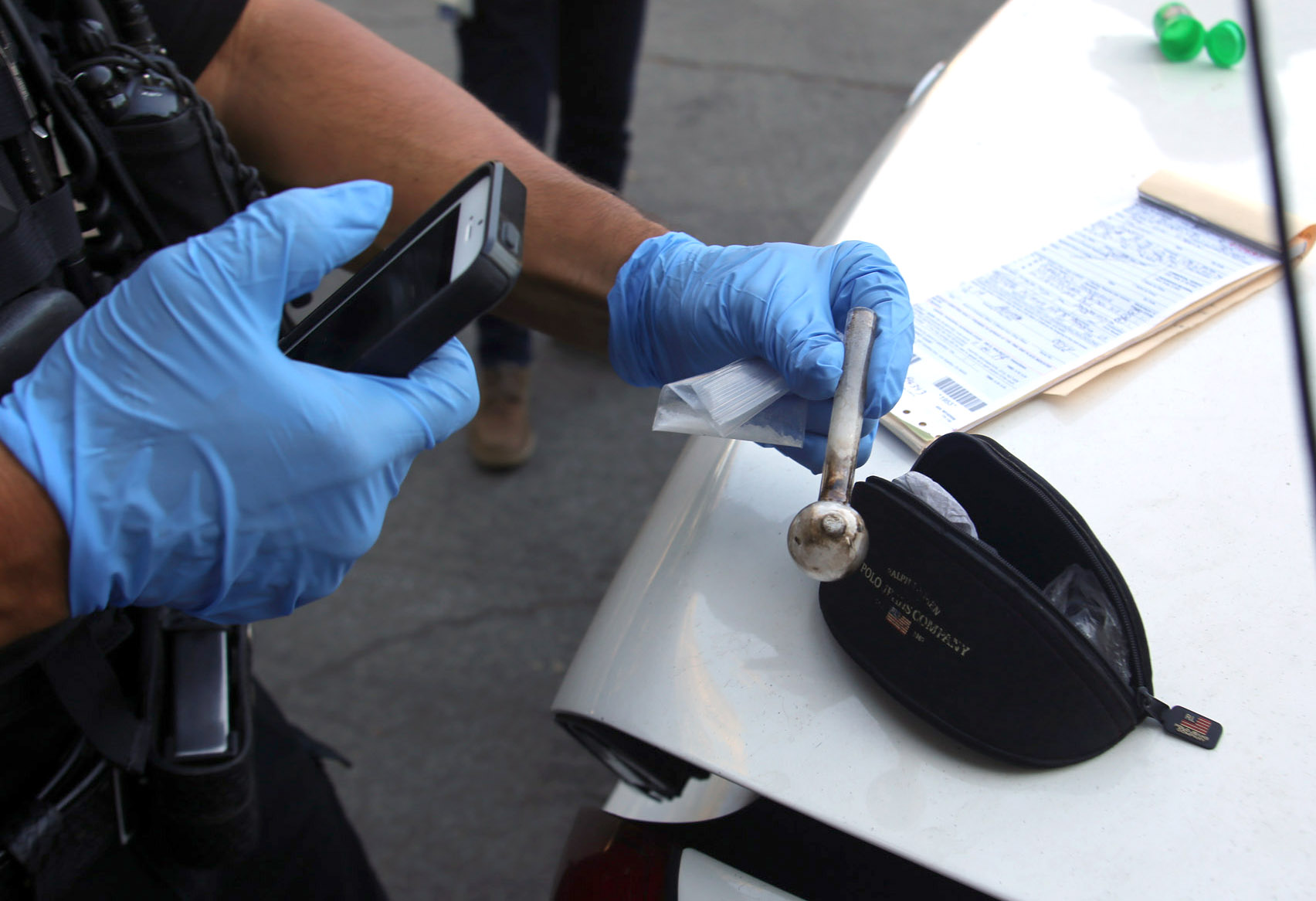
The HOPE team find a Methamphetamine pipe and meth found in the living area under the 210/134 FWY under pass on Tuesday September 3, 2019. (photo by James Carbone)
It can take hundreds of contacts, multiple arrests and hospitalizations before the individual finally surrenders, he said.
“There are guys out there who will quickly tell us to (expletive) off,” Vasquez said. “‘I just want to use dope all day and whatever I have to do to get it, I’m going to do it.’ Then there are others who are like, ‘hey I’m ready to go. I really need some help. I need to get off the streets.’ It’s refreshing when we get somebody like that.”
On a recent shift, Jones and Vasquez came across 49-year old woman living under the 210 freeway.
The woman, named Tracy, appeared weathered and frail. She was in possession of methamphetamine and a meth pipe.
Jones and Vasquez have dealt with her numerous times in the past, arrested her at least seven times and offered to assist her in finding treatment for drug addiction.
She has declined help every time.
“I met her two and half years ago in the same spot,” Jones said. “I don’t know if she has any type of mental health issues diagnosed. She’s moved around from all the freeway embankments. It’s not like we haven’t given her the opportunity (to get help).”
On this instance, officers confiscated the meth and the pipe and issued Tracy a citation for trespassing and illegal camping.
Earlier, a woman who had generated numerous calls for service in the same day walked into a business, grabbed a bowl of candy and threw it.
Officers placed her on a 72-hour psychiatric hold, called a 5150 hold, for being a danger to herself or others.
H.O.P.E. officers receive training in crisis intervention, crisis negotiation, drug and alcohol recognition training and enforcement strategies geared specifically for the homeless and mentally ill.
Within Pasadena is are two psychiatric hospitals, a medical center and two shelters.
“Pasadena is a unique place to be homeless because we have a lot of generous folks here,” Vasquez said. “We have a lot of churches. There are a lot of programs. There are a lot of people coming out here and feeding folks, but at the same time, that brings in folks and those folks don’t want help.”
Despite the available help, attempts to provide that help is usually met with resistance, he said.
“All we can do is attempt,” the nurse said.
 Behind the Badge
Behind the Badge
